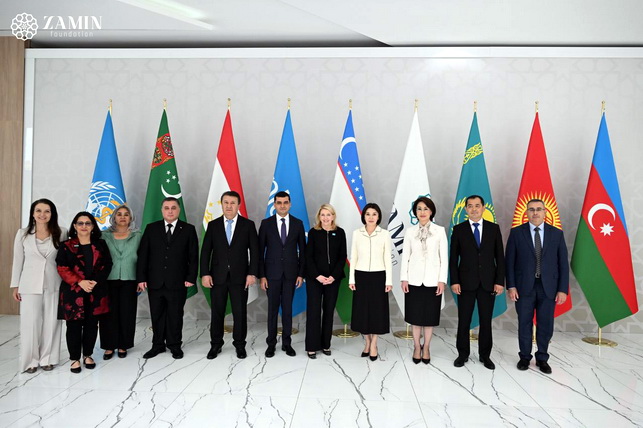
International Forum in Tashkent: Priority — health and well-being of children
International Forum in Tashkent: Priority — health and well-being of children
Tashkent, Uzbekistan (UzDaily.com) — A regional forum titled "Dialogue for Children: Central Asia and UNICEF" was held in Tashkent, timed to coincide with International Children's Day, the press service of the Zamin Foundation reports.
The forum served as a platform to discuss and strengthen international cooperation aimed at improving the quality of medical care for mothers and children by defining shared priorities and effective strategies, with special emphasis on strengthening primary healthcare and addressing pediatric oncology care through a multidisciplinary approach.
Participants included heads of UNICEF, WHO, UN offices, as well as health ministers from Kazakhstan, Kyrgyzstan, Tajikistan, Turkmenistan, Uzbekistan, Azerbaijan, and representatives of the Zamin Foundation.
In her address to the forum, Ziroat Mirziyoeva, Chairperson of the Zamin Foundation’s Board of Trustees, stated: “We are firmly committed to continuing systematic work to ensure the health and well-being of every child. We pay particular attention to implementing a multidisciplinary approach, including programs to combat oncological diseases within pediatric services. Our greatest success is the joyful laughter of happy children, the peace and full confidence of parents.”
The Central Asian countries reaffirmed their commitment to international standards in child health protection by strengthening primary healthcare. Development of primary healthcare was identified as a catalyst for achieving universal health coverage in the region.
“In Central Asia, health systems face a double burden: non-communicable diseases and unfinished tasks related to maternal and child mortality. Undoubtedly, strengthening primary healthcare is the most cost-effective and reliable strategy to address these challenges,” said UNICEF Executive Director Catherine Russell during her speech.
A significant portion of the forum was devoted to improving oncological care systems for children and adolescents, which should be integrated into government programs ensuring accessibility, including prevention, early diagnosis, and treatment, supported by qualified personnel, psychosocial support, and digital monitoring.
Support services should go beyond clinical care to include parental education, peer support groups, and family counseling, providing assistance to the child within the family and social environment.
Welcoming the efforts of Central Asian governments to ensure the health of mothers and children, WHO European Regional Director Hans Kluge emphasized, “Children’s health is the health of our peoples. It is the most powerful investment we can make in human capital, social stability, and the future we all want to build. WHO is always ready to walk this path with you.”
Special attention was given to the creation of a unified platform — the Academic International Hub for Combating Childhood Cancer, whose Board of Trustees includes leaders from the participating countries, designed to accelerate the integration of the best international practices into the region’s clinical and scientific activities.
At the forum, Central Asian countries, supported by UNICEF and WHO, adopted a declaration aimed at developing cooperation among governments, academia, partners, and civil society in the field of child and adolescent health.